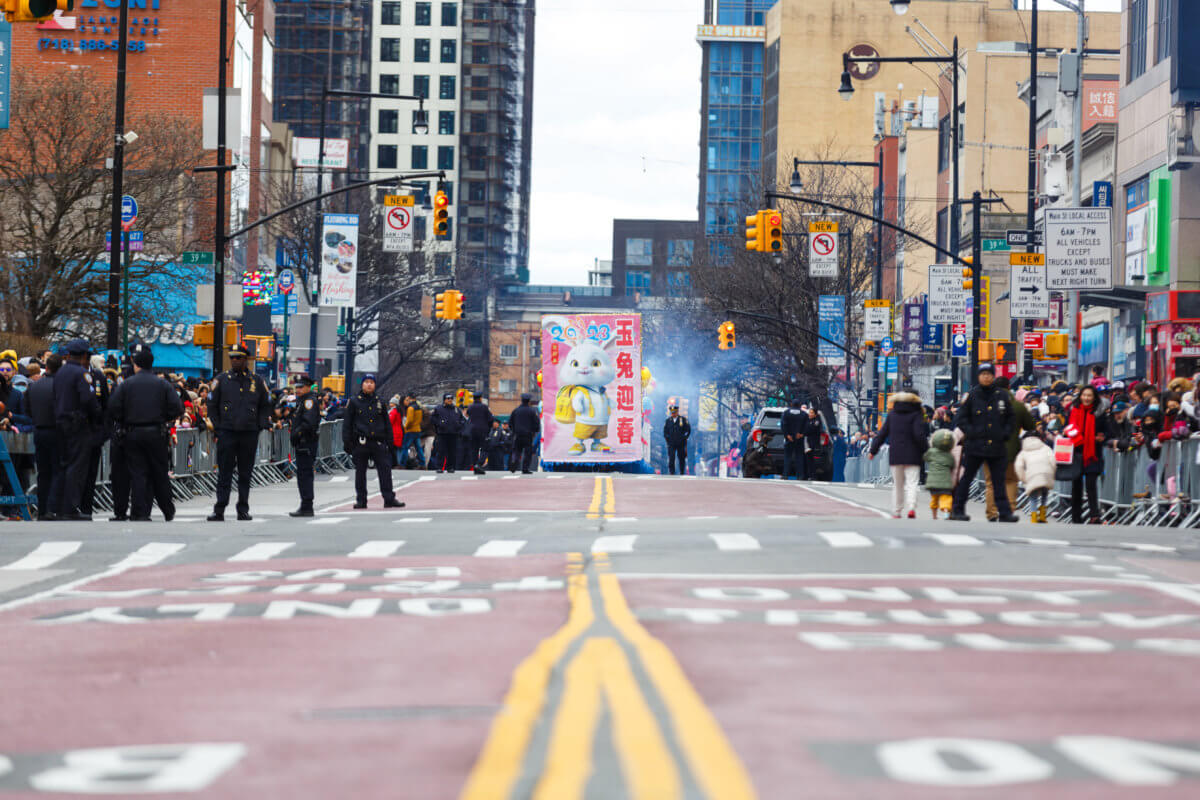
Jul. 20, 2023 By John Schilling
Behind the hustle and bustle of Times Square and 34th Herald Square in Manhattan, the busiest intersection in New York City exists in Queens at Flushing’s Main Street and Roosevelt Avenue, and it’s easy to see why.
For years, Flushing has been one of the largest central business districts in all of New York City, attracting locals and tourists far and wide to check out what the North-Central Queens neighborhood has to offer. Whether it’s food, entertainment, historical sites or other views, there’s plenty in Flushing for everyone to enjoy.
In the late 20th century, Chinese and Korean immigrants settled in Flushing, and this diversity still manifests itself in the area today, especially in the neighborhood’s local, Asian-inspired eateries.
Home to the second largest Chinatown in New York City, Flushing is popular for its quick-bite bakeries, including Apollo Bakery, Taipan Bakery and Fay Da Bakery. Among the most popular bites on the menus are hot roast pork buns, Portuguese custard tarts, and curry puffs, which are enjoyed by visitors from all over.
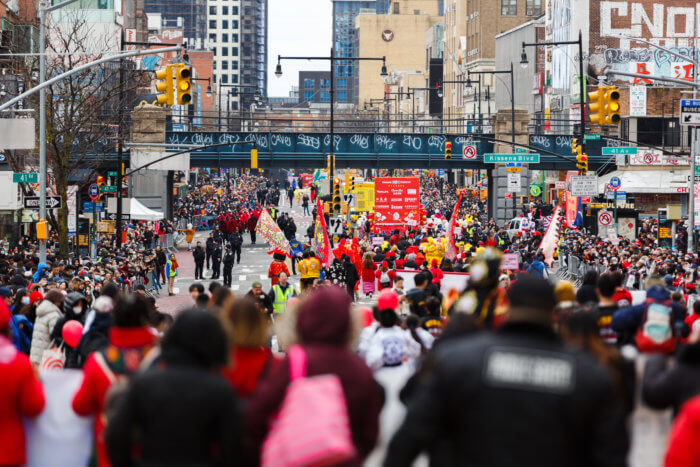
The annual Flushing Lunar New Year Parade makes its way up Main Street in Downtown Flushing on Saturday, Jan. 21, 2023.
The theme of Asian-inspired cuisine, however, does not stop there and continues to “a dizzying number” of food stalls that can be found in the popular neighborhood spots like New York Food Court, New World Mall, The Shops at Skyview Center, Hong Kong Supermarket, Queens Crossing, and Tangram. The collection of spots offers everything from traditional noodles and dumplings to fish-head dishes and rich desserts.
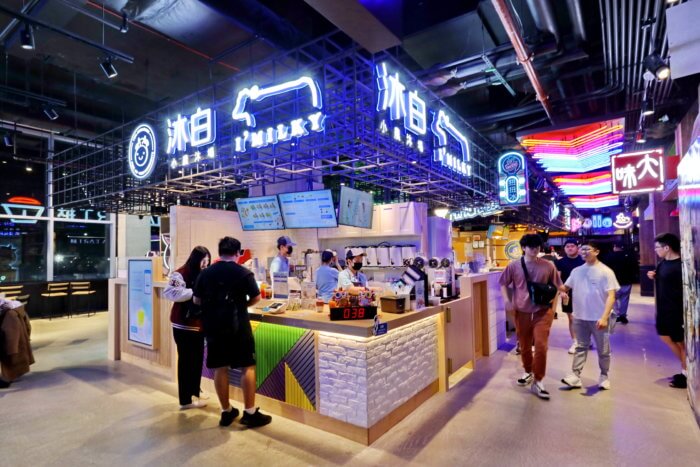
Flushing Tangram opened its long-anticipated Food Hall on Jan. 12, featuring specially selected vendors of international cuisine. (Photo courtesy of Tangram)
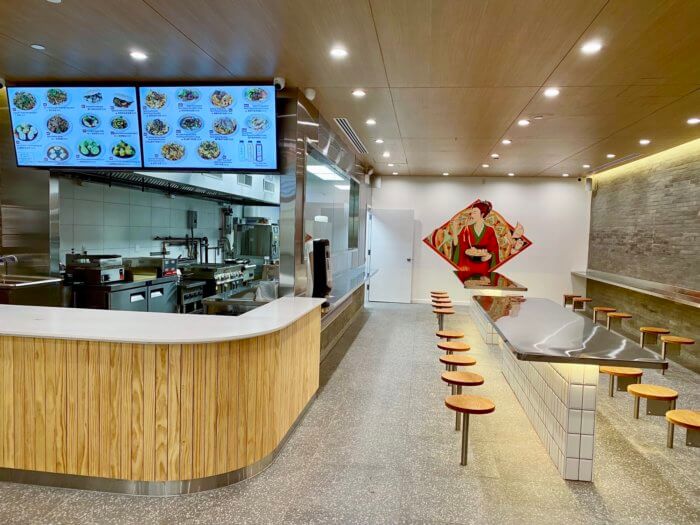
Xi’an Famous Foods, a chain of fast casual restaurants based in New York City that serves authentic Western Chinese dishes, is opening a new location at Tangram in Flushing. (Photo courtesy of Tangram)
Besides the bites, Flushing is also home to elegant tea houses in the heart of the neighborhood, including local businesses like Prince Tea House and Fang Gourmet Tea. Some visitors, however, may be more accustomed to bubble tea, a growing trend that originated in Taiwan and can now be found easily throughout the world at malls or branches of international companies, such as Coco, Kung Fu, and Happy Lemon, all of which can be found in Flushing.
If visitors are looking for even more to eat, Rob MacKay, the director of public relations, marketing and tourism for the Queens Economic Development Corporation, recommends venturing into the Northeast Flushing area.
“Greater Flushing is a wonder to explore,” MacKay said. “Head to the Murray Hill section for an array of authentic Korean BBQ dishes at Hahm Ji Bach or visit the Hindu Temple Society of North America, whose Temple Canteen is a well-kept secret for delicious dosas.”
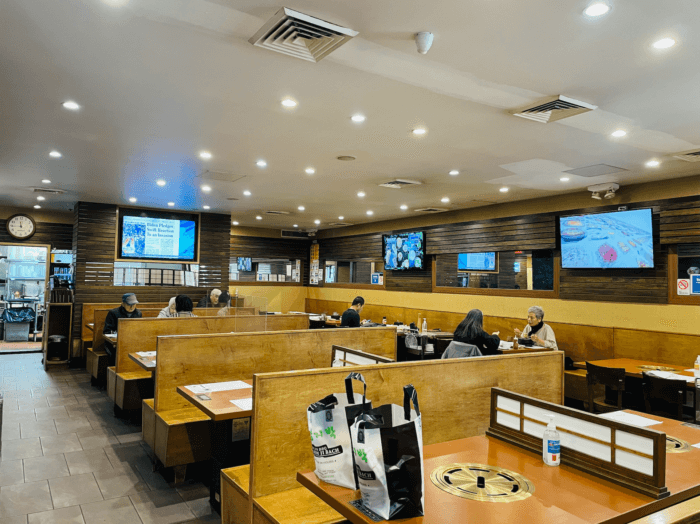
Customers dining at Hahm Ji Bach, located at 40-11 149th Pl. in Murray Hill (Photo by Carlotta Mohamed/QNS)
Other places of significant popularity include Asian Jewels for seafood and dim sum, Gyu-Kaku for Japanese BBQ, Kum Gang San for Korean food, Leaf Bar & Lounge for craft cocktails and small Taiwanese plates, OK Canaan for more Taiwanese dishes, and Pho for a wide range of Vietnamese dishes.
While this diversity in food reflects the neighborhood’s multicultural spirit, the same is also true for Flushing’s many tourist attractions that capture the area’s rich history.
“History buffs can visit seven landmarks, many of which are within walking distance from one another,” MacKay said.
In addition to the 897-acre Flushing Meadows Corona Park, home to the 1939 and 1964 World’s Fairs, the colorful roses and herbs at Queens Botanical Garden on Main Street and Citi Field, the home of the New York Mets, Flushing is also home to the Lewis H. Latimer House Museum, which is named for the African-American inventor known for his work on the telephone and light bulb with Alexander Graham Bell and Thomas Edison, respectively.
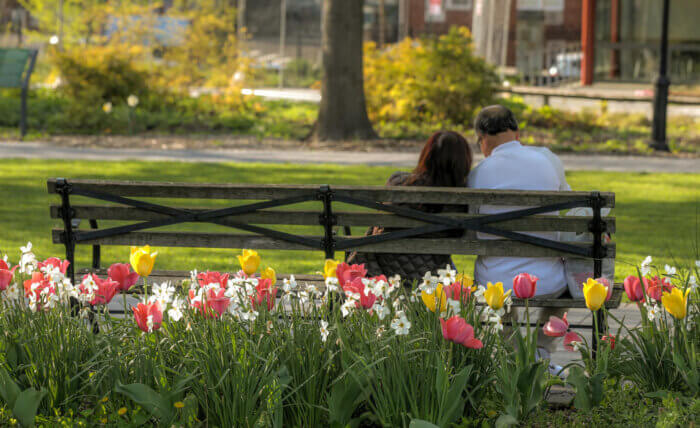
Photo courtesy of Queens Botanical Gardens
Other popular spots include the Kingsland Homestead, the Queens Historical Society headquarters, as well as the Voelker Orth Museum, known for its Victorian garden and bird sanctuary.
Nothing, however, comes quite close to the John Bowne House, the oldest and “most historic” building in all of Queens known for helping establish religious freedom in the United States in 1662 after New Netherland Director Peter Stuyvesant arrested John Bowne, a quaker who eventually appealed the arrest to the Dutch West India Company and won.
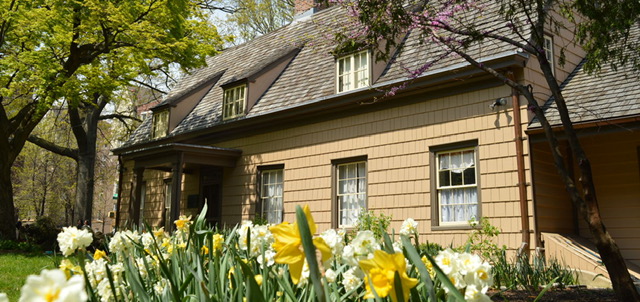
John Bowne House, located at 37-01 Bowne St. in Flushing. (Photo courtesy of John Bowne House Museum)
“As the country’s birthplace of religious freedom, Flushing is home to spiritual centers representing almost every faith,” MacKay said.
Aside from the Bowne House, crowds also visit historical religious places like St. George’s Episcopal Church on Main Street, the Free Synagogue of Flushing, the Buddhist Tzu Chi Foundation’s northeast regional headquarters, the Gurudwara Sikh Center of New York, the Muslim Center of New York and the Conservative Jewish Temple Gates of Prayer.
The historical sites, however, do not stop there and continue with Flushing Town Hall, known as “a dynamic cultural venue” for its performing and visual arts programs that range from theater and jazz or classical music to dance and puppetry.
Aside from various productions at its 308-seat theater, however, Flushing Town Hall’s significance runs much deeper as a Romanesque Revival building dating back to as early as the Civil War.
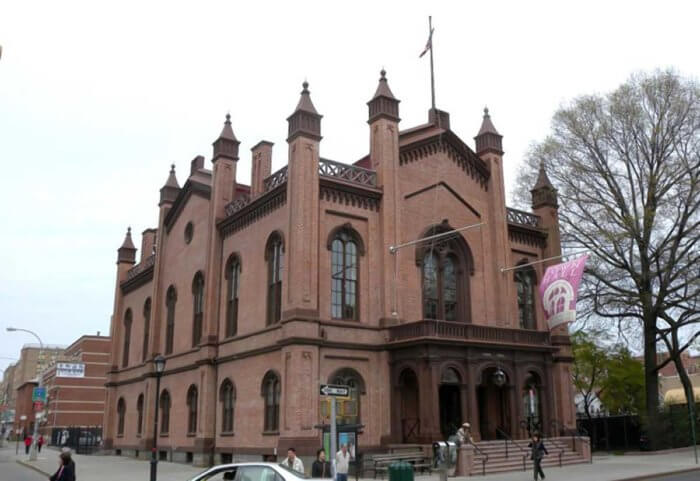
Flushing Town Hall, located at 137-35 Northern Blvd. (QNS file photo)
“Built in 1862, Civil War conscripts were sworn into the Union Army in the upstairs assembly hall,” MacKay said. “In the late 19th century, an extension was added and the venue started hosting opera and traveling theater. For a time, the legendary P.T. Barnum was its impresario and Tom Thumb was its star performer.”
Currently, visitors can enjoy Flushing Town Hall’s “Monthly Jazz Jam” that happens on the first Wednesday of every month under the direction of saxophonist Carol Sudhalter and the house band.
Arguably the largest source of entertainment, however, will come late next month with the U.S. Open Tournament at Flushing’s USTA Billie Jean King National Tennis Center, which welcomed a record-setting 776,000 fans last year and looks to repeat that during this year’s tournament.
Just like the neighborhood it sits in, the stadium complex offers a diverse range of cuisines for tennis fans to enjoy, including American, Asian, Indian, Italian, Latin, and Mediterranean bites, as well as gluten-free, vegan, vegetarian, and kosher options.
Ultimately, visitors may opt to venture to these Flushing sites on the 7 Train from countless Manhattan hotels, they can instead stay in one of Flushing’s hotels, including the Fairfield Inn or The Parc Hotel on College Point Boulevard, Four Points by Sheraton on Farrington Street, Hotel Indigo on Flushing Street, Hyatt Place Flushing or the Sheraton LaGuardia East Hotel on 39th Avenue, and the Renaissance New York Flushing Hotel at Tangram on 37th Avenue.
Regardless of where visitors end up in Flushing, they are likely to find something that makes the trip worthwhile.